ISLAMABAD: Afghan
Taliban on Monday rejected a peace deal between the Afghan government and Hizb-e-Islami. The deal had been signed in September, 2016.
The
Taliban have so far avoided commenting on the peace agreement. However, the insurgents denounced the deal after a senior Hizb spo
kesman, Qareebur Rehman Saeed, claimed that several
Taliban leaders had ‘contacted’ him and agreed to join the peace process.
Saeed h
ad told the Pajhwok news agency in Kabul that members of the
Taliban political circles, who had contacted the Hizb-e-Islami, were i
nside and outside the country.
“The
Taliban group has realised that the war is not a solution to the conflict,” Saeed had claimed. The
Taliban issued a statement to dismiss as “misplaced, contrary to facts and propaganda” remarks by Hizb-e-Islami spo
kesman that
Taliban officials had contacted him.
“We categorically reject the claim. We have not established any contact with him and the Hizb officials should not involve themselves in such propaganda,”
Taliban spo
kesman Zabihullah Mujahid said.
“The Hizb-e-Islami’s leaders should not take political mileage of the Islamic Emirate’s policies,” the spo
kesman said. The
Taliban use ‘Islamic Emirate’ the name they used during their 1996-2001 rule of Afghanistan.
“The stance of the Islamic Emir
ate is that laying arms to the enemy and cooperating in realisation of their sinister designs is inadmissible in Shariah and is contrary to the wishes of millions of martyrs,” the
Taliban spo
kesman said in a Pashto-language statement emailed to media persons.
Hizb chief Gulbuddin Hekmatyar, who returned to Kabul this month under the peace deal, had been critical of the
Taliban since he re-emerged for the first time in nearly 16 years. Hizb put a stop to its armed resistance as per the 25-point peace agreement. The government has allowed the party to carry out political activities.
Hekmatyar had also offered his mediation between the government and the
Taliban. However, the
Taliban spo
kesman had earlier stated they “do not give any importance” to Hekmatyar’s statements. The
Taliban’s angry reaction has raised concerns over the possible tension between the Hizb and the
Taliban as both have never been on good terms.
Taliban bombers had attacked the house of an MP Mir Wali, who had been associated with Hizb, in Kabul in December, killing at least eight people while injuring Wali and his wife. Son of another MP Obaidullah Barikzai from Kandahar, also a Hizb leader, was killed in the attack.
Taliban and Hizb-e-Islami had earlier been involved in clashes in parts of the country including Maidan Wardak, Kunar and Kunduz.
Taliban have serious apprehensions over the Hizb’s joining the government. A Hizb-e-Islami spo
kesman said last week that the party had handed over a list of nearly 4,000 of its former fighters to be recruited in defence forces.
Several Hizb-e-Islami leaders have already joined the government, including Haji Sharafat, who has been made adviser in the Tribal and Border Affairs Ministry. Haji Abdul Malik has been given a senior position in the country’s intelligence agency. As Hizb is now part of the government, it can also be the target of the
Taliban as the insurgents have declared war on all organs of the state.

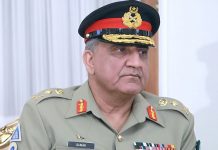

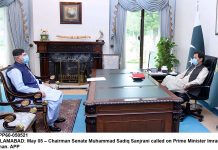
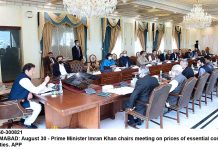
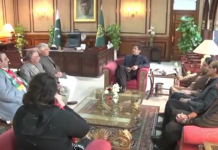
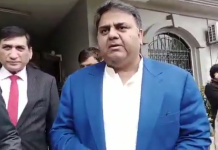






.jpg)
